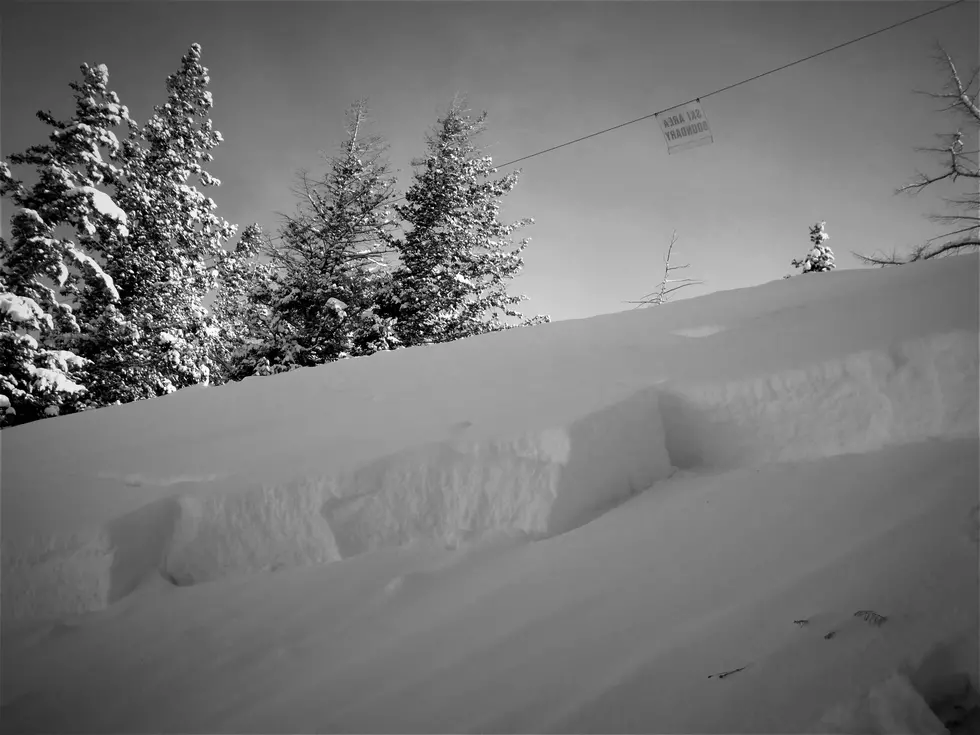
Geddy Lee Refuses to ‘Live Off the Fumes’ Of His Past: Exclusive Interview
On January 19, the Rock & Roll Hall of Fame hosted a Rush Fan Day. Despite a looming snowstorm, the band's fans came out in force to see an exclusive Q&A between bassist Geddy Lee and guitarist Alex Lifeson—and the former signing copies of his new book, Geddy Lee's Big Beautiful Book of Bass. The day also marked the opening of a new exhibit of Lee's basses—curated by the musician himself—covering his entire career with Rush, which will be open until early April.
During the Q&A, Lee discussed how he amassed his collection, which is depicted by gorgeous photographs in the book "I said to Skully [bass tech John “Skully” McIntosh], 'Hey, maybe we should just get a modest collection of maybe 12 iconic basses from the guys that I love. Like Jack Bruce's EB-3, [John] Entwistle's Thunderbird, [Paul] McCartney's 500/1 violin bass. That was my modest goal back then. About 280 basses later, here I am!"
Lifeson also asked his one-time bandmate what his plans were for the collection—and for those unable to get to Cleveland, there's good news. "I've got a couple of longer exhibits planned in various parts of North America," Lee said. "I really like that idea. We have a small exhibit here [in Cleveland] of about eight instruments, but there's one we're working on in Canada, and I'd like to do an exhibit in our hometown of Toronto."
Before the Q&A, Ultimate Classic Rock had the chance to snag a few minutes with Lee to chat exclusively about Geddy Lee's Big Beautiful Book of Bass and what else he's up to now that the book is done. Appropriately, the conversation took place right in front of Rush's actual Hall of Fame entry, which features gold-embossed print of the band's logo and the trio's signatures.
Geddy, in the book you said you were "very focused on crafting a sound of my own" and you "shied away from instruments" you "feared might lead me in the wrong direction." From doing this book and becoming such a collector -- opening your horizons -- how do you feel that your sound and approach to music has changed?
A musician's sound and approach to music is a constant work in progress. As I allude to in the book, I was very focused on a particular identity for myself, and I only used the instruments that would satisfy that direction. Now that I've been introduced to so many different brands and different soundscapes, I've yet to see where that will take me, but I have a feeling it'll be a very interesting journey. [Laughs.]
What did you learn about your own playing style?
Well, one thing you do learn over time—and especially playing so many different instruments—is that your sound comes from here in your fingertips. [Lee makes a gesture with his hands, like playing bass.] You know, you can put Jaco Pastorius' bass in your hands and you can make a couple of notes that sort of sound like Jaco, but the longer you play it, the less you will sound like Jaco. Only Jaco sounds like Jaco, and [with] most great players, the same thing is true. And that's a transportable thing, because it's your personality coming out with the instrument in your hands. So that's something that's been reinforced by this collection for me.
What was the most difficult thing for you doing the book?
Everything. [Laughs.] Cutting it down was the hardest part of it, because the original manuscript was 845 pages. We had to whittle it down from over 30,000 photographs to a manageable 408 pages and about a thousand photographs. And it's a bit like a jigsaw puzzle, you know. Every time a photo's changed, whatever caption you had written for that photo has to change. And so you're sort of chasing your tail for months. Every time you revise the photo array, you have to revise the text. And so it just seems like it's an impossible task, but eventually you get there.
Could we see a volume two anytime?
It's possible.
Now that the book is done, what's next for you?
I don't know what's next for me, and I'm enjoying that. My life has been scheduled for the last 42 or so years, and I think I owe it to my family—and I owe it to myself—just to be a human being and allow things to happen, rather than to be so strategic in planning out my moves, if you know what I mean. I did that for so many years that I'm enjoying being bored occasionally. And out of boredom comes productivity, I believe.
This book was a massive undertaking for me. I have another couple of projects that are different from music projects that I'm working on, but I hope to get back into my home studio and see if I have something to say again.
Anytime soon? Do you have a timeframe?
I don't have a timeframe.
Was it hard to get into that mindset of realizing, "I don't have to be X place all the time"?
Yeah. It was hard to adjust to not having my band to rely on, you know, because the band was the epicenter of my life for over 42 years. That's a big adjustment, because everything you do is in context of when you go back to work, right? So your playtime is really playtime, because you know you're going back to work because you do have a job.
But when you don't have a schedule to adhere to, it sometimes invokes a bit of panic. You know, where you're going, "Holy shit, what am I going to do now?" But I have faith in my interests, and I have faith in my ideas, and I know that sooner or later I'll find myself doing something that intrigues me.
But I won't do music just for the sake of doing music. I have to feel that I have something to say. And that's really important to me. I don't want to just repeat and live off the fumes of my past.
Rush has been doing archival 40th anniversary things recently. In 2019, there isn't a Rush studio album that was released in 1979. Is there anything archival in the works?
A lot of those reissues are sort of planned from a record company perspective. They don't really originate with the three of us. Usually they're, you know, an outside idea that someone says, "Hey, you have an anniversary of this coming up. We'd like to do a really beautiful box set," or something. And I go, "Okay." I'm not really Interested in what happened. I'm more interested in where I'm going than where I came from.
Rush Albums Ranked Worst to Best
You Think You Know Rush?
More From 98.3 The Snake










